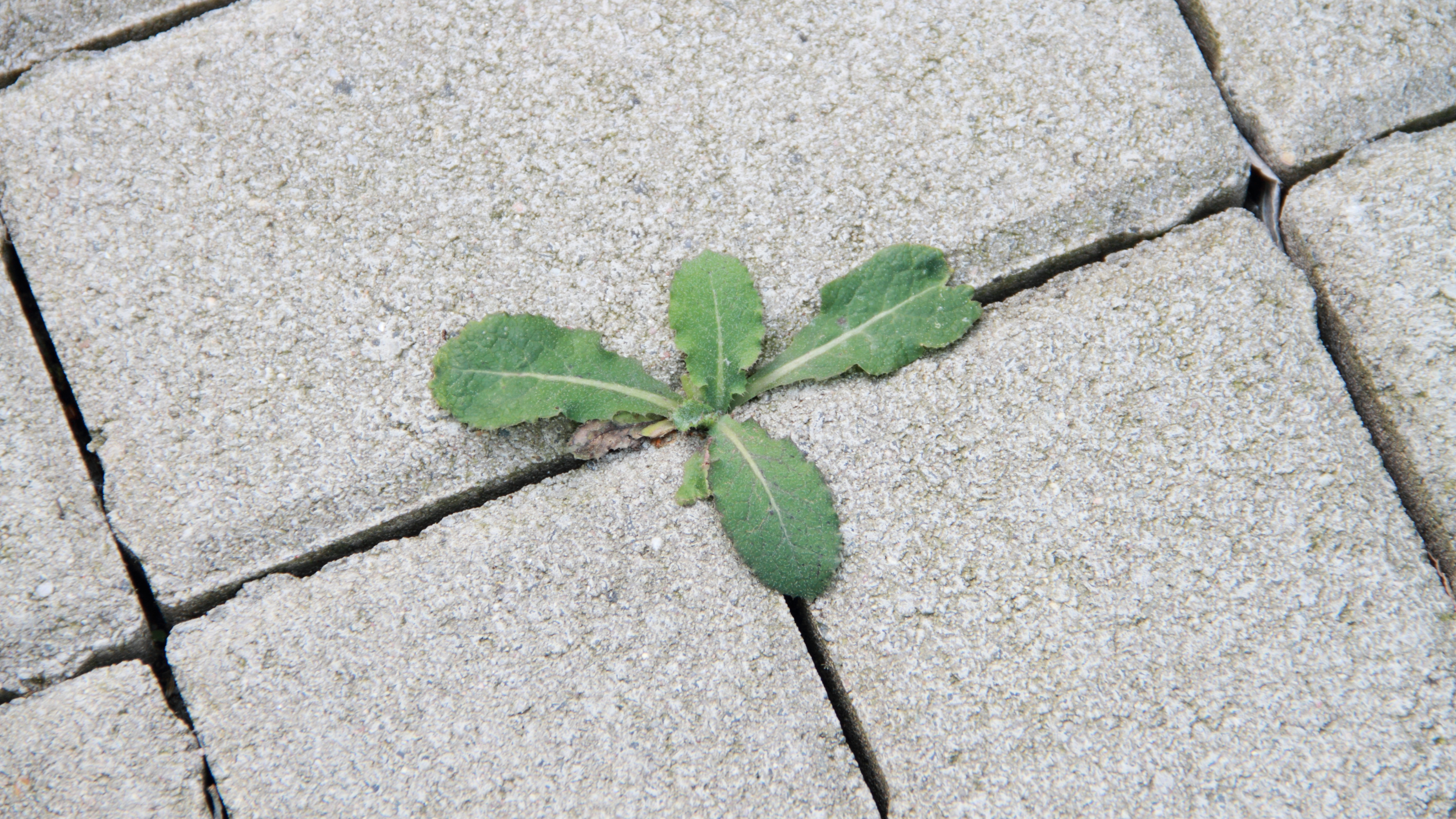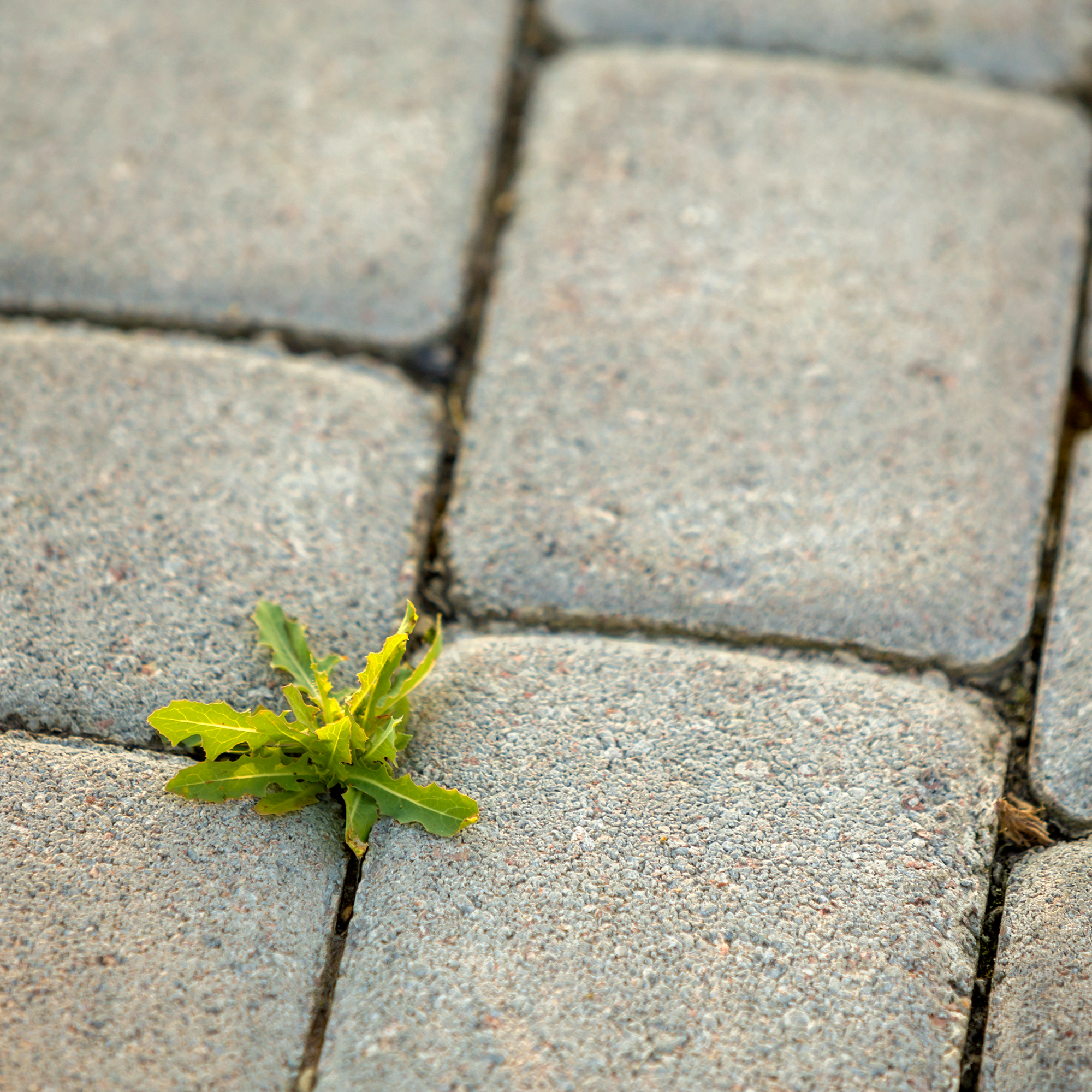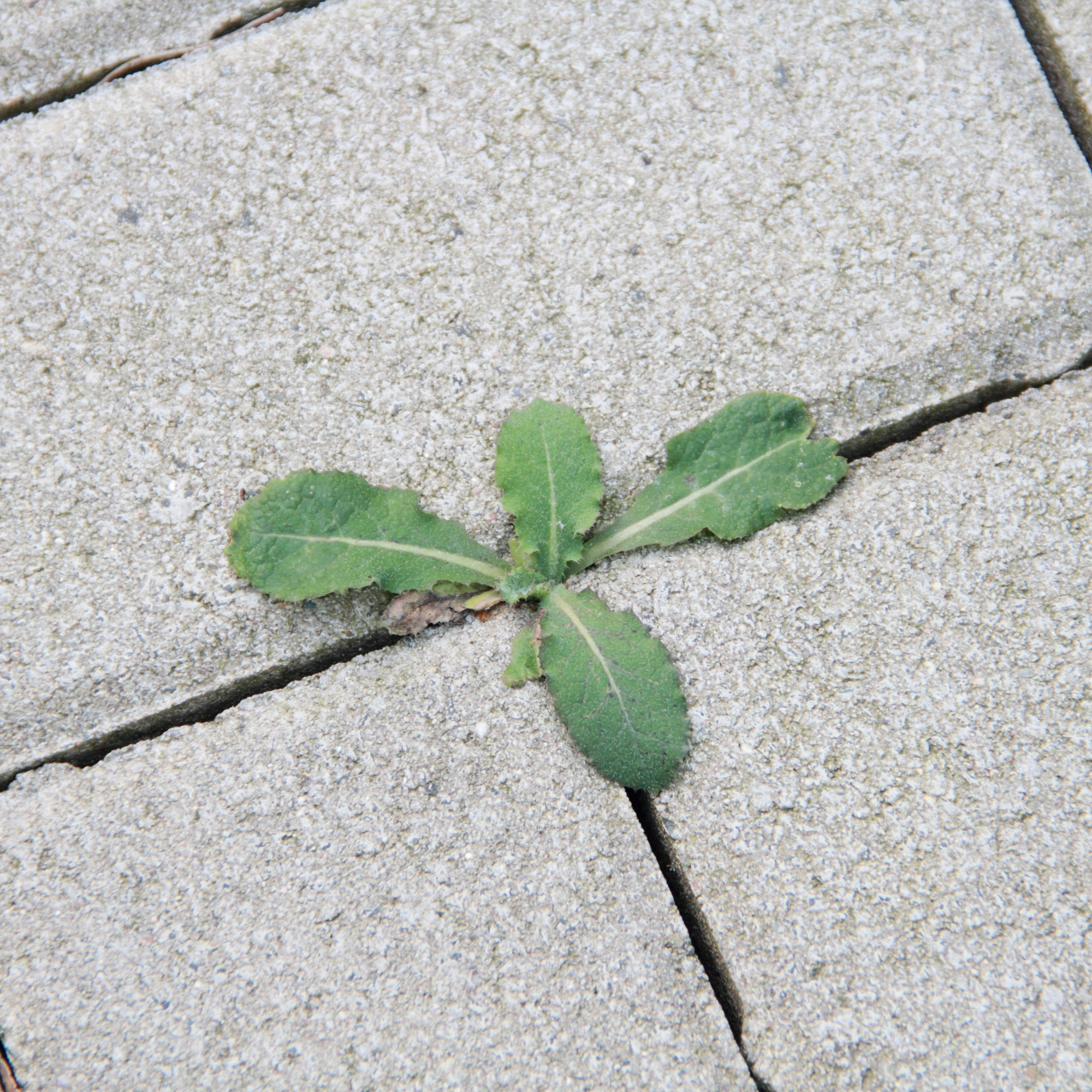Does salt kill weeds? Absolutely, but gardening experts urge you to take note of these key considerations first
The most effective way to use it for maximum impact


EDITOR’S NOTE: An earlier version of this article included a quote from a purported expert whose credentials we have not been able to verify. The quote has been removed. We regret this lapse in our verification process and have updated our internal protocols to reduce the risk of recurrence.
Weeds have been a hot topic lately, so naturally we've been on the hunt for the best ways to get rid of weeds in the garden. While there's always the option of using dedicated weedicide for the job, if there's a hidden gem in our kitchen cupboards that'll do the trick, we're all ears. This has led us to wonder whether salt kills weeds.
In case you don't know, we're currently on a bit of a journey at Ideal Home to find the most effective ways to kill weeds. From using white vinegar to clueing ourselves up on the reasons why we shouldn't use bleach to kill weeds, we're learning more every day to finally tackle the job of successfully removing these unwanted plants surrounding outdoor spaces.
In an ideal world, being able to use something as accessible as salt to get rid of weeds is the best-case scenario. You've always got it on hand in your kitchen cabinets, and it's affordable enough to buy in bulk. Thankfully, gardening experts have revealed that salt is an effective method but, as with anything, it comes with a couple of caveats...

Does salt kill weeds?
Yes, salt does kill weeds. Jane Dobbs, team lead of gardening at Allan's Gardeners explains that salt kills weeds by drawing moisture from them and disrupting their water balance. 'Salt, particularly sodium chloride, is a cost-effective and natural weed killer. As salt is applied to soil, it pulls moisture out of plant cells, causing dehydration and eventually plant death.'
However, although salt is an effective weed killer, it still comes with downsides and key things to consider before you use it in your garden.

'Salt still has a few risks and it has some environmental consequences,' explains Jane. 'Salt accumulation in the soil can disrupt soil structure, stunt plant growth, and impact the environment.'
'Leaching salt into groundwater or nearby water bodies can also harm beneficial salt microorganisms. In the long run, salt can lead to barren spots that don't grow most plants, which is counterproductive for gardening.'
Sign up to our newsletter for style inspiration, real homes, project and garden advice and shopping know-how
It's not all doom and gloom though. Although there are some issues that salt can cause to the soil and surrounding plants and flower beds, so long as you're using it in small, diluted quantities, you won't find yourself with a garden nightmare.

How to effectively use salt to kill weeds
'It's best to make a very weak salt and water solution for a start and only use it at spots where soil health won't be an issue in the future,' advises Petar Ivanov, gardening and plant expert at Fantastic Gardeners.
'I'd suggest mixing 3 parts water and 1 part salt for the solution and applying it to the very base of the weed using a funnel and being very careful. After that, you can increase the amount of salt in the solution a little bit every day until you start seeing the weed is being affected.'
If you choose to try out this method, Jane says that any nearby plants need to be watered after you apply the solution. 'It will prevent damage and allow the salt to leach below the roots.'
For areas with concrete, Petar assures you can use this salt water solution a lot more freely as there's no risk of causing harm to other desirable plants. This includes getting rid of weeds in gravel and stopping weeds from growing in block paving.
FAQs
Does salt kill weeds permanently?
Salt can kill weeds naturally, but it won't solve any larger weed problem permanently. In the case you're dealing with a lot of weeds, you'll likely need to opt for a more comprehensive weed control strategy, recommended and carried out by professionals.
How long does it take for salt to kill weeds?
'It'll take up to 10 days for the weed to properly absorb the salt in the water and it mostly only works on smaller and young weeds,' explains Petar Ivanov at Fantastic Gardeners.
'Besides that, you won't be able to plant anything in the spot which you've treated with salt because sodium chloride doesn't break down and it'll take up to several years to be entirely washed away.'
So, the verdict? Salt is definitely an effective way to kill weeds naturally, but should only be used sparingly and carefully, keeping the above important tips in mind.

Jullia was Ideal Home’s Junior Writer from 2022-2024 and the Ideal Home Certified Expert in Training on Vacuums having spent over 60 hours testing different models. She’s always loved all things homes and interiors, graduating with a bachelor’s degree in Architectural Studies from the University of Nottingham where her love for writing blossomed following her internship at ArchDaily. Now focused on home tech and cleaning, Jullia works on writing features and explainers to help people make the most of their home appliance investments, putting the newest launches through their paces. When she isn’t writing, she loves exploring the city, coffee shop hopping, and losing hours to a cosy game or book.
